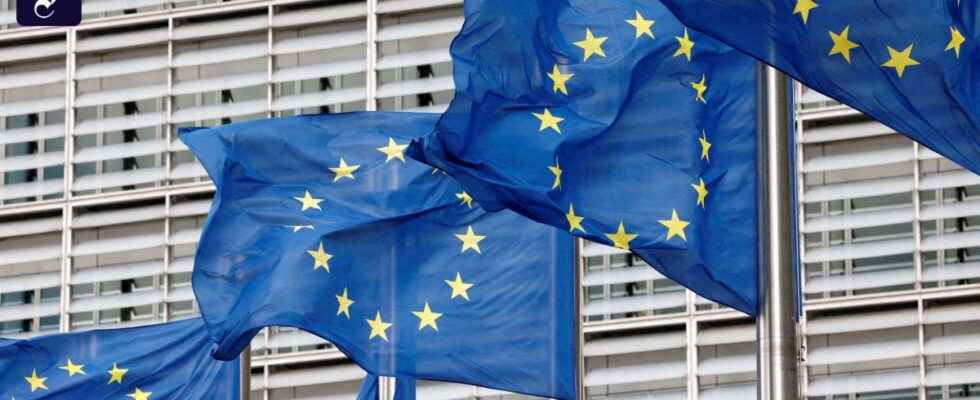ÜFor months, the European Commission has blocked the demands of many member states for a gas price cap. But now she is proposing at least a price cap to avoid extreme swings on the wholesale markets. If the price for the following month (“month-ahead”) on the Amsterdam leading index TTF exceeds the threshold of 275 euros per megawatt hour for at least two weeks, it should automatically be capped at that level. However, this only applies if the European price for liquefied natural gas (LNG) does not also rise sharply. The distance must be at least 58 euros. Unlike the German gas price brake, the cap is not intended to directly reduce costs for customers. They would benefit with a time lag if wholesale prices fell.
Although the price cap is below the record prices of the summer, it would not have been activated even then. Prices had risen to up to 350 euros in August – but they were only above 275 euros for a few days, not the necessary two weeks. The increase was due to the very high temperatures, but also to the German purchasing policy for filling the storage tanks. Since September, the price has fallen sharply to below 120 euros.
The proposed law is not a gas price cap in the strict sense. Month-ahead trading covers only 22 percent of trading, according to the commission. Trading for a longer period of time is not affected, nor is short-term trading (“day-ahead”). This also applies to contracts concluded between two parties directly or through intermediaries (“over the counter”).
The Commission takes a middle course
With the proposal, the Commission is trying to find a middle ground between repeated calls for a price cap and resistance from countries like Germany. She herself has previously warned that a price cap could jeopardize EU supplies if the gas is then sold elsewhere. It therefore also proposes a number of security mechanisms. She wants to be able to unilaterally suspend the price cap if supply is at risk or consumption increases.
Ultimately, the cover is set so high and designed that ideally it will never be activated, according to the commission. However, it will still have an effect on the markets. In Berlin, however, the proposal is met with skepticism. The federal government insists that there is no fixed but a dynamic cap, as agreed by EU leaders in October. The Commission argues that the price cap is dynamic in that it is linked to the LNG price. Berlin also wants to ensure that the states simultaneously raise their gas savings targets from 15 percent to 25 percent. It is uncertain whether this will succeed.
Germany is supported by Austria, Denmark and the Netherlands. On the other hand, many countries, above all Greece, Italy, Poland and also Belgium, are pushing for a fixed cap. They have signaled that they could agree in principle to the gas price cap outlined by the Commission last week. However, the very high threshold that has now been chosen is likely to cause controversy.
The law is scheduled to come into force in early 2023
Energy ministers are to discuss the cap at a special meeting in Brussels on Thursday. They could then adopt it at their next scheduled meeting in mid-December. The law would then come into force in early 2023 and initially apply for one year. This is longer than originally considered by the Commission. It actually only wanted to use the cap to bridge the time until it has worked out a new price index that reflects the situation on the gas market better than the TTF.
According to the Commission, the TTF is determined too much by the lack of pipeline deliveries from Russia. The price for LNG is not sufficiently included. Currently, 80 percent of trading is based on the TTF. Brussels justifies the longer period of validity of the cap by saying that the storage tanks have to be refilled from April onwards. If that leads to price swings, the EU is prepared.
The proposal aims to increase the chance that ministers will agree on some other proposals on Thursday to bring down the price of gas. Some states had threatened to block the process if the EU Commission, as initially planned, did not submit a concrete proposal for a law on the gas price cap until later. First, the ministers could decide on a proposal for faster approval procedures for the expansion of renewable energy. Second, they could accept the emergency package presented in mid-October, which, in addition to the new gas price cap, also provides for bundling gas purchases for refilling the storage facilities in 2023.
